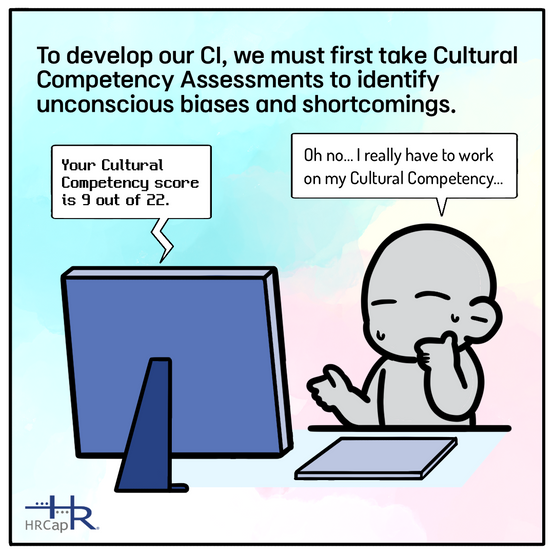“Focus on Cultural Intelligence (CI) above Emotional Intelligence (EI)”
- Oct 20, 2023
- 3 min read
Updated: Nov 8, 2023
Written by Stella H. Kim
Published October 19, 2023
Prioritize Developing Cultural Intelligence

We have entered an era that prioritizes diversity.
48% of Gen Z identify themselves as non-white, ethnic minority or multiracial; one-third of Multinational Corporations worldwide have headquarters in the United States; and every year, thousands of organizations eagerly invest to strategically enter the global market.
According to the Economist Intelligence Unit (EIU), up to 70% of global start-ups failed due to cultural differences, and 90% of executives in 68 countries have ranked managing diverse cultures as their top business priority. The studies have also revealed that miscommunication and misunderstandings caused by language barriers and cultural differences continue to be pressing issues across all organizations.
For instance, the mere act of making eye contact with a supervisor can be interpreted as defiance and rudeness in certain organizational cultures. However, in other cultures, communicating without making eye contact may display dishonesty and incompetency.
In other words, cultural intelligence (cultural quotient), the ability to clearly recognize and empathize with cultural differences, has become more urgent and increasingly important. Cultural intelligence refers to a combination of motivation, knowledge, awareness, and skills that enables one to deeply understand, learn, and adapt to the differences of people coming from varying cultures and diverse backgrounds.
So then how is Emotional Intelligence different from Cultural Intelligence? Someone with high Emotional Intelligence may focus on developing new working habits that can drive enhanced interpersonal relationships with their coworkers. On the other hand, those with high Cultural Intelligence take this a step further by understanding and accepting the different cultural backgrounds to unlock potential with their coworkers for greater collective growth.
How can we develop Cultural Intelligence? First, we must take Cultural Competency Assessments to identify our unconscious biases and improve on any shortcomings. Next, we must engage in cultural sensitivity training and apply the learnings to grow as inclusive leaders. We must help reduce any fears of speaking up, despite organizational structures or corporate hierarchies, and then engage to actively listen. This will help foster a corporate culture where everyone can truly trust and collaborate with each other.
Leaders with strong cultural sensitivity know how to build and lead an organizational culture based on diversity, equity and inclusion, thereby increasing the overall sense of belonging and satisfaction among employees. As a byproduct of strong collaboration and high team productivity, these organizations can also gain a competitive advantage and see improved customer satisfaction. Teams with such high cultural intelligence are propelled to grow even stronger with each new multicultural or multigenerational hire.
Many companies have been actively investing in cultural competency development. HRCap, a Top 10 Global Executive Search & HR Consulting firm specializing in providing glocalization services, has been spearheading the global initiative by expanding our business model to now not only provide talent acquisition and recruitment services, but also include ▶ HR Advisory ▶ Cultural Competency Training ▶ Leadership Assessments ▶ Technical Skills Training & Leadership Development Programs, and more.
Rather than only looking for those who can quickly adapt to the company culture, we must invest in talent that can lead the necessary change for greater transformational growth. Rather than hiring members who will just follow our lead, we must also invest in employees from whom we can continuously learn from as well. We encourage both organizations and leaders to strengthen their learning agility and deepen their cultural intelligence to continuously adapt and transform in today’s modern society.
Stella H. Kim, SPHR
HRCap - Chief Marketing Officer & Global VP
Original Source: [중앙일보] "전문가 칼럼" '감성지능(EI) 이어 문화적 지능(CI) 강화 필수'"
Source: HRCap, The Korea Daily, JoongAng Ilbo






















































![[CEO Journal] Building Forward on Legacy, Magnetism, and Connection](https://static.wixstatic.com/media/6f5bc0_1fcddf4dc6354f609f427410648784f0~mv2.jpg/v1/fill/w_980,h_1349,al_c,q_85,usm_0.66_1.00_0.01,enc_avif,quality_auto/6f5bc0_1fcddf4dc6354f609f427410648784f0~mv2.jpg)
